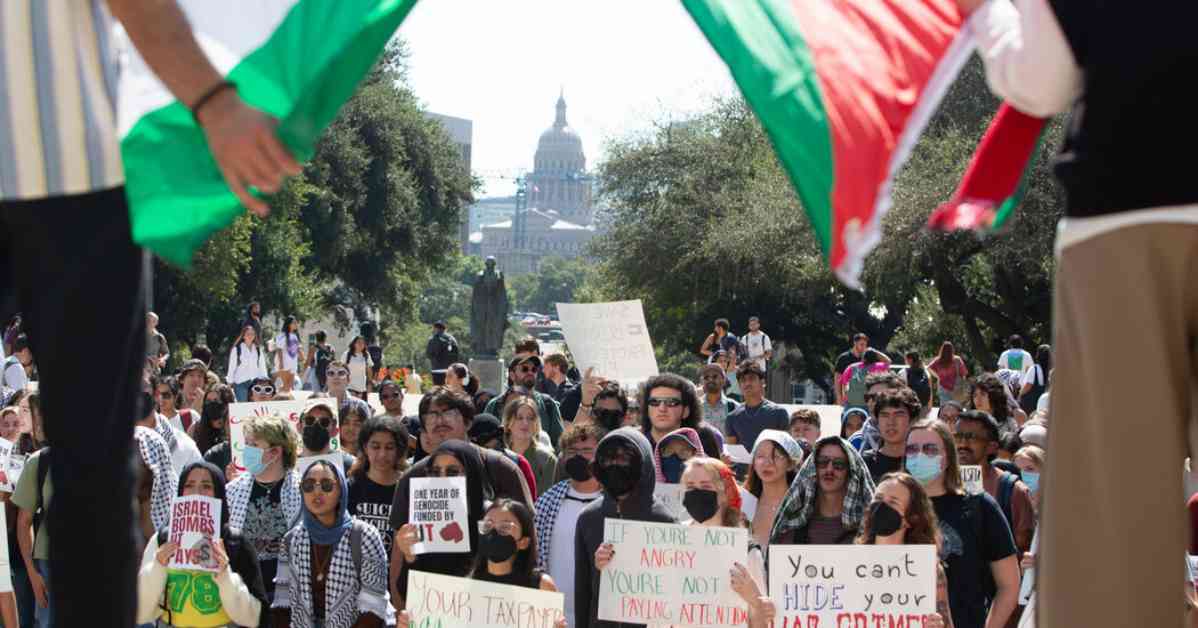Universities across the country have been implementing stricter rules and punishments in response to pro-Palestinian activism on campuses. This crackdown on protests seems to be yielding results, as there have been significantly fewer protest events this semester compared to the previous one.
According to data from the Nonviolent Action Lab at Harvard University’s Ash Center, there have been just under 950 protest events on higher education campuses this semester, a sharp decrease from the 3,000 events recorded last semester. Additionally, the number of arrests related to protests has also dropped significantly, with only about 50 people being arrested so far this school year compared to over 3,000 arrests in the previous semester.
Administrators have been strictly enforcing new rules created in response to last spring’s unrest, resulting in scenes that were previously unimaginable. At Harvard, students and faculty members were temporarily banned from libraries after participating in silent “study-ins” protesting the war in Gaza. Similarly, at Indiana University Bloomington, attendees of candlelight vigils were referred for discipline under a new prohibition on expressive activity after 11 p.m. And at the University of Pennsylvania, vigil attendees were asked to move by campus police officers holding zip ties for not complying with new reservation rules.
Impact on Student Activism
This crackdown on pro-Palestinian activism has had a significant impact on the tradition of student activism on university campuses. The strict enforcement of rules and punishments has led to a decrease in the number of protests and arrests, signaling a shift in the way universities handle dissenting voices.
Student Reactions and Adaptations
Students and faculty members have had to adapt to these new regulations, with some facing disciplinary actions for participating in protests and vigils. The increased surveillance and policing of demonstrations have created a tense environment on campuses, where once vibrant expressions of dissent are now met with strict consequences.
Future of Campus Protests
As universities continue to crack down on pro-Palestinian activism, the future of campus protests remains uncertain. While the decrease in protest events may indicate a stifling of dissent, it also raises questions about the limits of free speech and expression in academic settings. Will students continue to push back against these restrictions, or will the era of campus activism be forever changed by these new regulations?




















